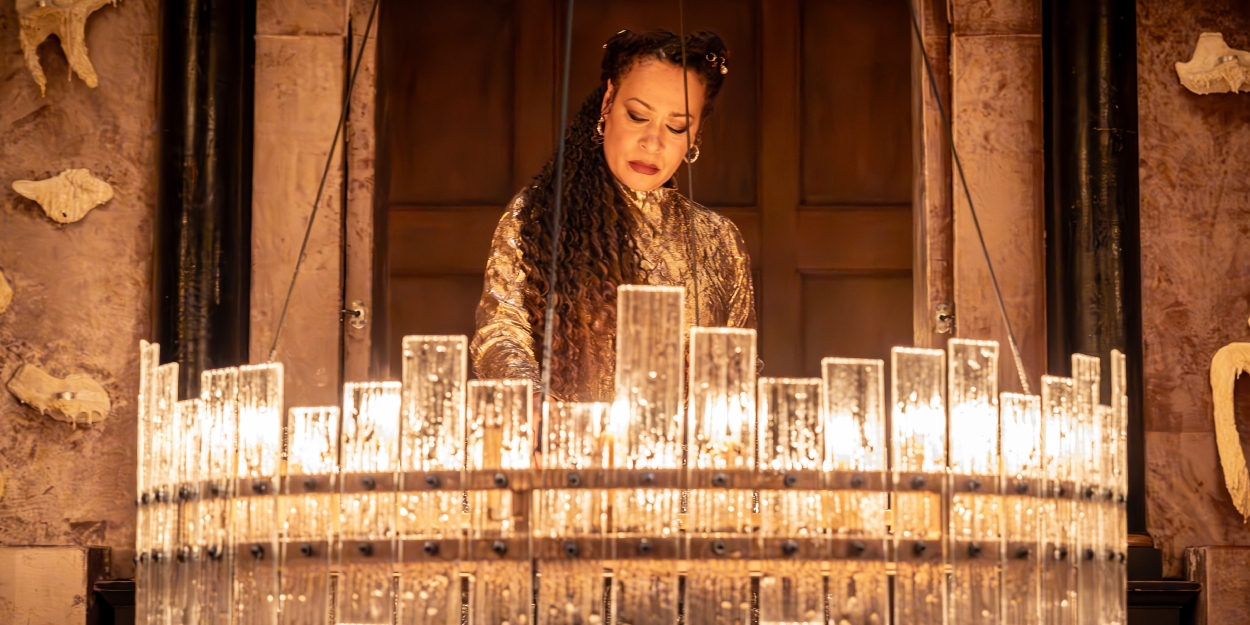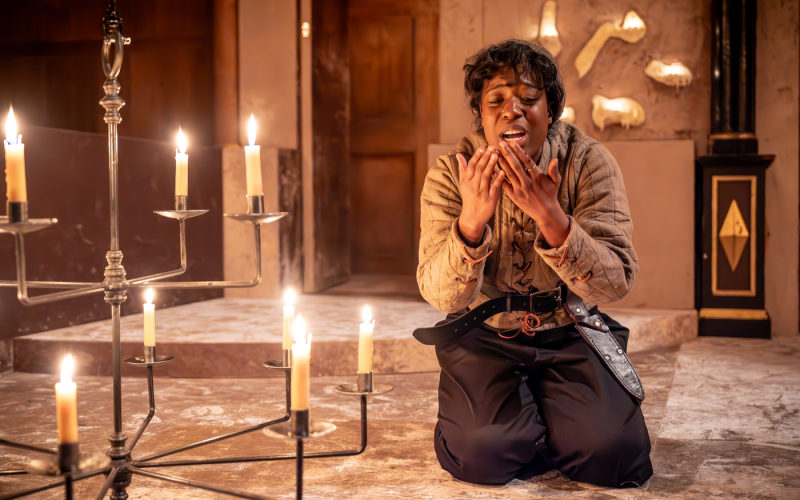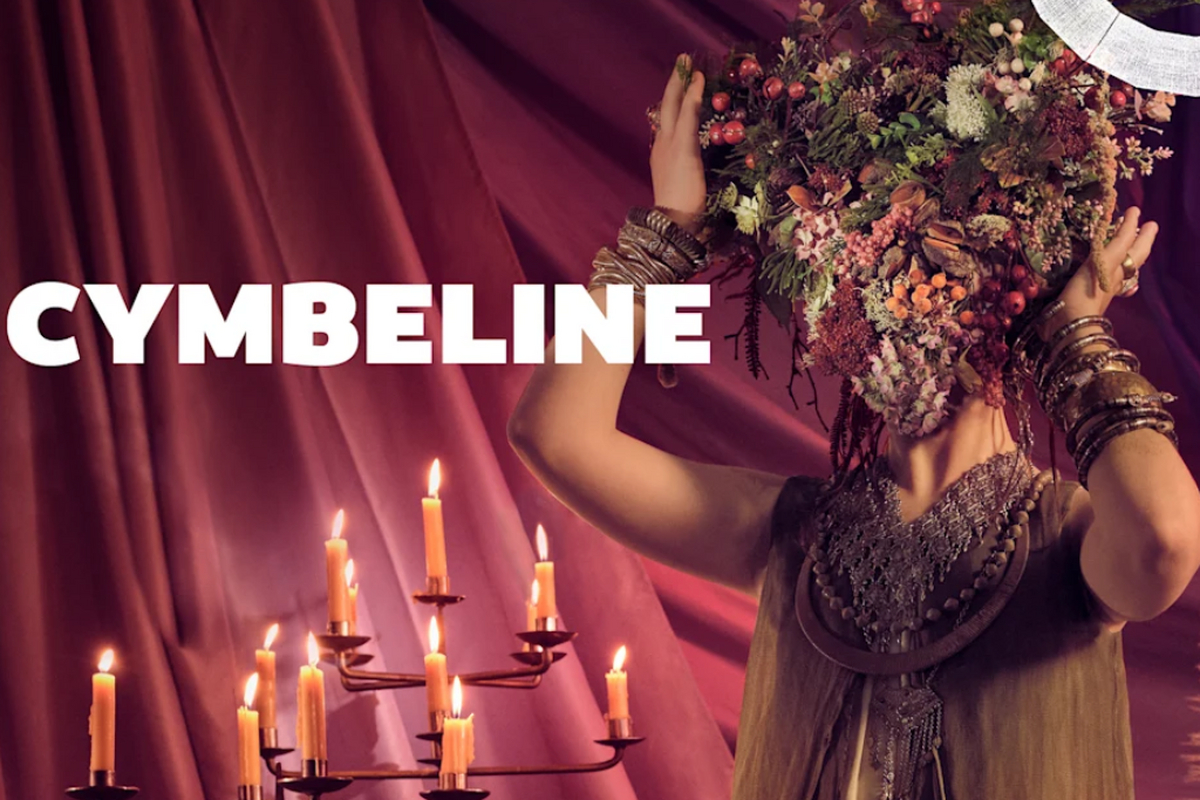Review: CYMBELINE, Shakespeare's Globe
A solid grasp of a slippery play

![]()
Shifting identities and hierarchies interweave like a spider’s web in Cymbeline, one of the Bard’s least popular plays. A pinch of added complication to spice it up can’t hurt.
Jennifer Tang’s Cymbeline flips its gender dynamics on its head. Cymbeline is Queen of a matriarchal Britain, vassal state of a male dominated Rome. Her daughter Innogen’s secret wife is a female Posthumus (like Cymbeline originally male), banished to Rome where playboy Iachimo bets that he can seduce her. It could spiral into a tacky whirlwind of sitcom silly but Tang conjures melodramatic tenderness in the eye of the storm.
An explicitly lesbian relationship anchors Posthumus’ cruel expulsion with tangible weight. Contemporary eyes will recognise or sympathise with her as a victim of homophobia lingering beneath her mother’s cruelty. The last production in the Globe’s candlelit Sam Wanamaker Playhouse also tweaked the sexuality of a core relationship. In weaker hands it risks tacky posturing but here it coheres brilliantly: sexuality becomes firmly political, drawn along gender lines when the eventual British rebellion and war with Rome is a rejection of blustering patriarchal order.

Photo Credit: Marc Brenner
Though it seems counterintuitive, the play’s interrogation of masculinity takes on more nuance in the female dominated world. Iachimo’s hyper male bravado, a crafty Pierro Niel-Mee flanked by blokey roman soldiers peaking from behind aviator sunglasses, is a puffed-up balloon waiting to burst.
Conversely perma-scowling Martina Laird’s steely resolve as monarch is arguably a female performance of a traditionally masculine role, emotions stoically suppressed - but at what cost? The original version’s scheming Queen is replaced by a dithering Duke whose ineptitness only strengthens Cymbeline’s temperament by comparison. Innogen flees from her mother’s court disguised as a man muttering “I see a man's life is a tedious one.”
.jpg)
Photo Credit: Marc Brenner
Where Tang fails is wrangling the play’s black humour. Cloten’s cartoonish pomposity is flightily over-animated for laughs at the price of shining light on the darkness underneath his surface. Posthumus’ bet for Iachimo neither has enough gravity to be believable nor is chaotic enough to be comical, and his attempted seduction of Innogen is uncomfortably somewhere between the two.
Pagan spirituality materialises in Cymbeline’s Britain through composer Laura Moody’s gorgeously tactile sound design. Water dropping, clanking stones, ambient percussion, and yodelling conjure an elemental mysticism. References to Jupiter are traded for Earth Goddess Gaia. It’s a shame that what we see doesn’t parallel what we hear. Costumes are indistinctly futurist, wine red for the Romans and earthy tones for the native Britons. But it’s forgivable. Tang’s directiial vision alone charges it with the momentum it needs. She has a solid grasp of a slippery play.
Cymbeline plays at the Sam Wanamaker Playhouse at Shakespeare's Globe until 20 April
Photo credit: Marc Brenner



